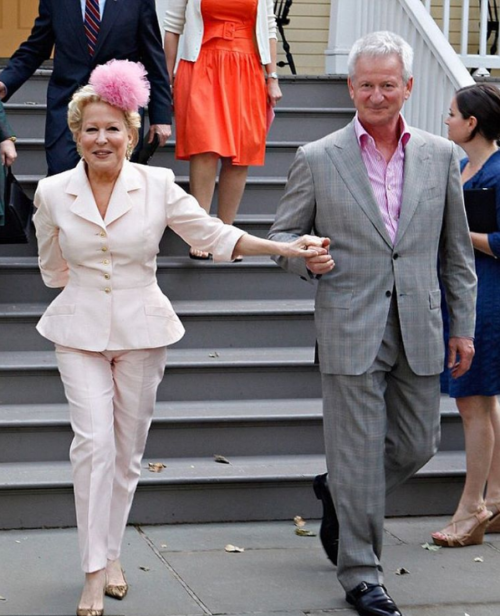A Rebirth For Musical Cinema
By MALCOLM JOHNSON
Courant Film Critic
March 23 2003

Whether or not “Chicago” sweeps tonight’s Academy Awards, as predicted, Rob Marshall’s flashy, hot-jazz-baby revision of the Kander and Ebb Broadway hit will almost certainly set off a new technicolor wave of a once beloved American movie genre.
Together with Baz Luhrman’s “Moulin Rouge!,” which pulled down a best-picture nomination and a best-actress nod for Nicole Kidman last year, “Chicago” can be given credit for heating up Hollywood’s interest in the musical, which had fallen on hard, cold times since its heyday in the ’60s.
If “Chicago” struts off with the top award, it will be the first musical to do so in a quarter-century. The last musical to win was Carol Reed’s inflated, tear-jerking 1968 “Oliver!,” based on a highly successful stage adaptation of Charles Dickens’ “Oliver Twist” by Lionel Bart.
The 1968 winner followed a run of successful transfers of Broadway hits to film. Robert Wise’s “The Sound of Music” won the 1965 Oscar, following George Cukor’s “My Fair Lady” (1964) and Wise’s “West Side Story” (1961). Those were the days when the major songwriting teams sent the sounds of their music throughout the land, and the Western World: Rodgers and Hammerstein, Lerner and Loewe, Leonard Bernstein and a young lyricist named Stephen Sondheim.
Clearly, the ’60s – now remembered for the eruption of The Beatles, the rest of the British Invasion and the screaming rise of such rock ‘n’ roll immortals as Jimi Hendrix and Janis Joplin – gave the Hollywood musical its most honored hours. The ’50s, a golden age on Broadway and the silver screen, produced only two best-picture winners, both directed by Vincente Minnelli: the Lerner-Loewe “Gigi” (1958) and “An American in Paris” (1951), which recycled songs by George and Ira Gershwin. The ’40s, what with wartime and its serious aftermath, produced no best-picture-winning musicals. The only two previous best-picture awards went to two backstagers: the overblown “The Great Ziegfeld” (1936) and the early sound extravaganza “The Broadway Melody” (1929), which basically celebrated the advent of sound and, in a few scenes, a new Technicolor process.
The Oscar wins are only a small part of the story, however. “Singin’ in the Rain,” the Gene Kelly-Stanley Donen spoof on the arrival of talking pictures, is generally regarded as the best musical ever to come out of Hollywood, but won no best-picture Oscar nomination. Both Minnelli’s “The Band Wagon” and James Whale’s superb 1936 “Show Boat” were similarly ignored, as was Minnelli’s 1944 “Meet Me in St. Louis.” The list could go right up to Alan Parker’s underestimated film adaptation of Andrew Lloyd Webber’s “Evita.”
After 1968, the year of the assassinations of Robert F. Kennedy and the Rev. Martin Luther King Jr. and of student revolutions in France, the Broadway musical seemed distinctly irrelevant, in the word of the day. Kelly’s “Hello, Dolly” with Barbra Streisand, released in 1969, seemed only to underline the loss of the genre’s vitality – though it was nominated for best picture. But new musicals sprang up, some like the 1975 Ken Russell-The Who’s “Tommy” and Parker’s 1982 “Pink Floyd – The Wall” based on rock-opera albums, others like Streisand’s 1983 “Yentl” and Mark Rydell’s 1979 “The Rose,” centering on pop divas (Bette Midler in the latter as a thinly veiled Janis Joplin). Then there was the 1975 undergound hit, “The Rocky Horror Picture Show,” recently revived on Broadway.
Now that the musical has earned a new currency, with “Chicago” passing the $125 million mark domestically, a big question arises: What direction will the genre take? “Moulin Rouge,” Luhrman’s wildly anachronistic fantasia of a poet and courtesan in turn-of-the-century Paris, which stirs in a mélange of Broadway and pop tunes, represents the artier and hipper stairway to paradise. While full of wacky visual ideas, Marshall takes a more traditional route in his tale of singing-dancing hot-honey killers in ’20s Chicago.
A number of other cinematic musicals are in the works, with more sure to come. Joel Schumacher is now slated to direct Lloyd Webber’s baroque pop smash “Phantom of the Opera,” but with no leading man yet attached. The ultra-glitzy director, who more or less killed off the Batman franchise, apparently has rejected Antonio Banderas as the man in the white mask, though the dashing Spaniard, so surprising as Che in “Evita,” is taking on a live Broadway challenge in “Nine” this spring. Perhaps that Arthur Kopit-Maury Yeston version of Federico Fellini’s “8½” will capture some producer’s fancy.
Also waiting in the wings is “Rent,” the East Village “La Bohème” by Jonathan Larson, a difficult project to translate to the screen. Marshall landed the “Chicago” gig in talks with Miramax Films on “Rent.” Miramax is also now contemplating a new version of “Guys and Dolls,” which Joseph L. Mankiwicz got almost completely wrong in the 1955 version with Marlon Brando and Frank Sinatra. Both action star Vin Diesel and Hugh Jackman (acclaimed for his Curly in London in “Oklahoma!”) have been mentioned for leads.
Of the current crop of Broadway shows, two movies that became musical hits could make it back to the screen: “Hairspray” and “The Producers.” The Disney “Aida,” with music by Elton John, will probably have a cinematic future, either as a live-action extravaganza or an animated feature. And the musical revival could also propel two musical spectacles – “Les Miserables” and “Miss Saigon” – to the screen.
Besides Marshall and Luhrman, two women powerhouses also might bring new imagination and style to the musical. Julie Taymor, the creative mind behind the stage triumph of “The Lion King,” has proved her cinematic strengths with “Frida” and “Titus.” Susan Stroman, the choreographer-director who brought new life and wit to “The Producers” and “The Music Man,” has not yet worked prominently in film. “Damn Yankees” might be ripe for a remake, with graphic shower scenes, as in “Take Me Out.” Or another Richard Adler-Jerry Ross musical, “Pajama Game,” might be set in a factory making Victoria’s Secret-style undies. Maybe a feminist revision of “Annie Get Your Gun” with a younger Reba McIntyre could introduce new audiences to Irving Berlin. Let’s go on with the picture show.
Copyright 2003, Hartford Courant






